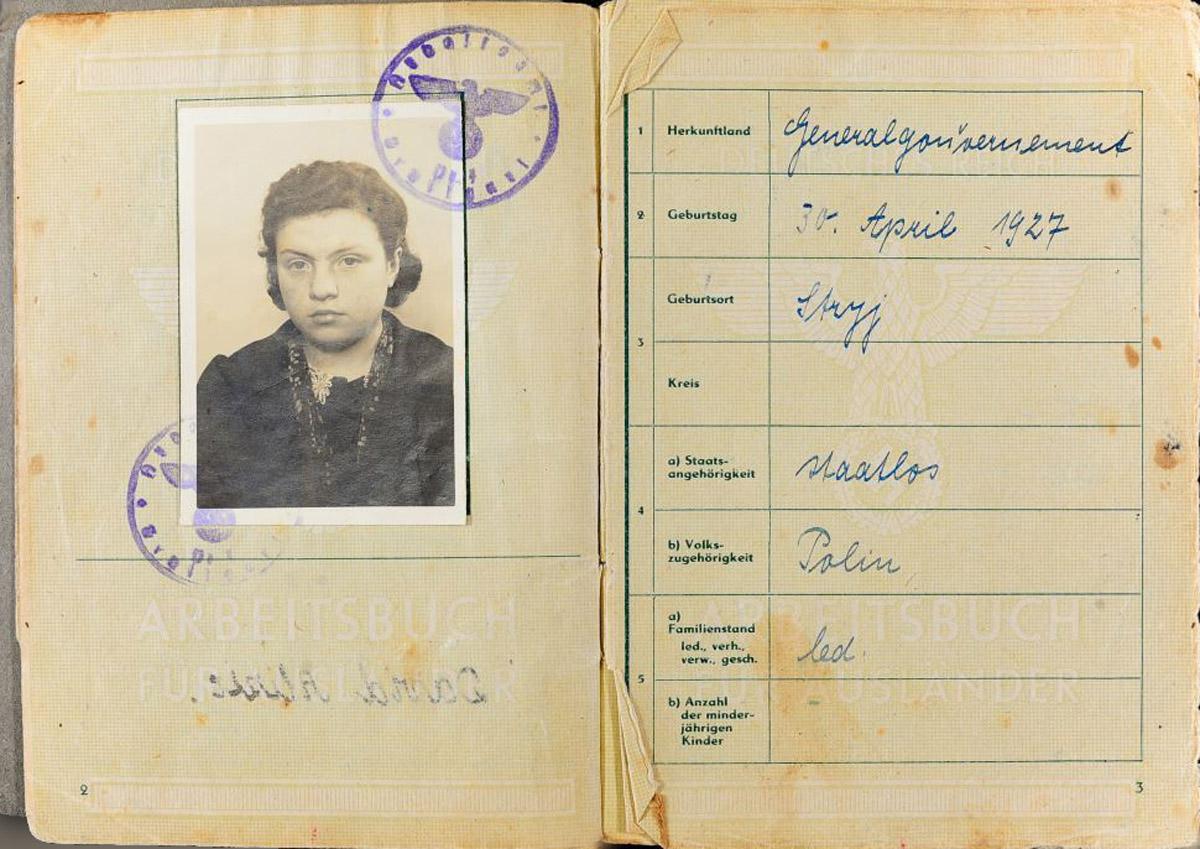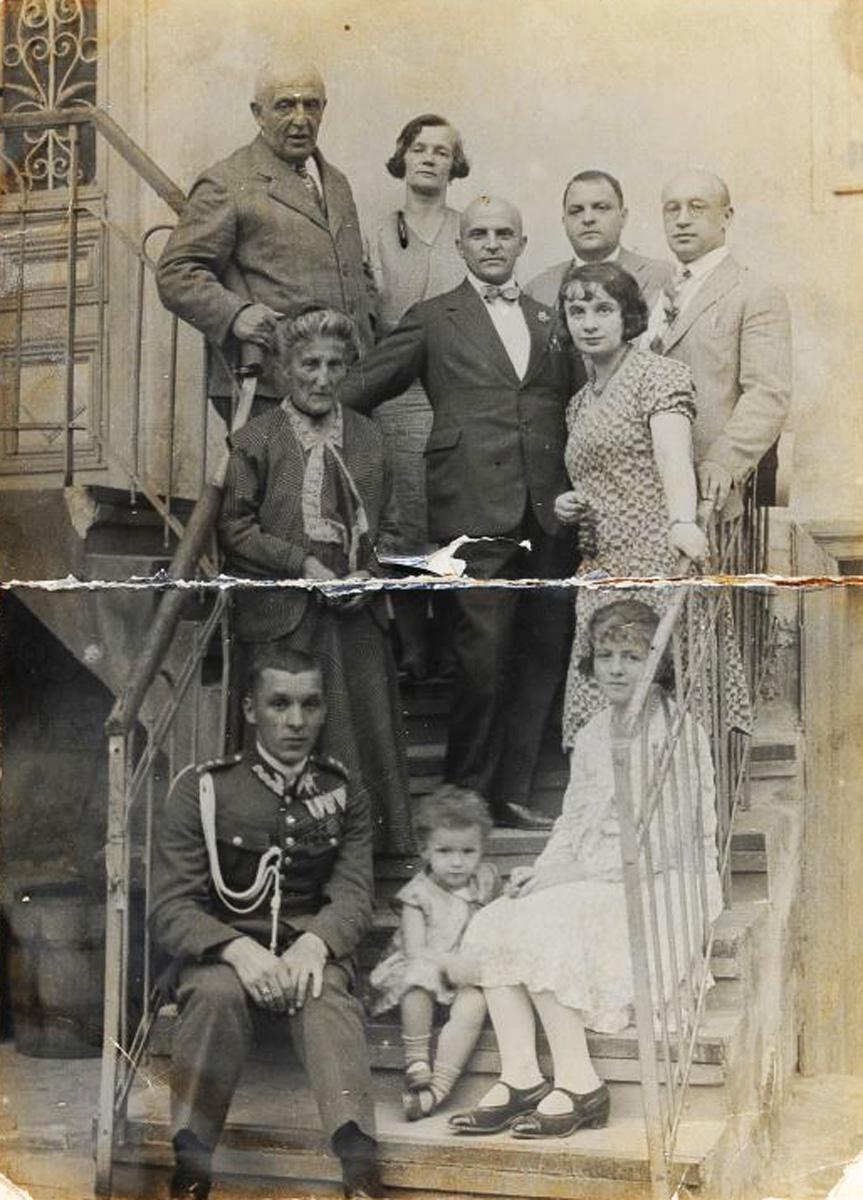
Yad Vashem


Yad Vashem

For many decades, Chana Jadwob’s wartime work permit remained on a shelf in her home amongst piles of other documents and photographs. Over the years, her daughter Shoshana Ofir asked her mother to tell her story of what she had experienced during the Shoah and how she survived; but Chana refused. “She threw out some words here and there, but would not go into details, and thus I was left with only pieces of information,” explains Ofir. “I never imagined that contacting Yad Vashem, would reveal a complete journey. My mother was a true hero, for which I was able to give her the proper respect until her last day.”
Jadwob passed away in 2008, but only recently did Ofir decide to act to commemorate her mother. She turned to Yad Vashem and, in the framework of the “Gathering the Fragments” campaign, donated her mother’s German work permit together with a number of family photographs from before the war. “I apologized to the Yad Vashem representatives that I did not have any additional information to give them, but I knew that if I did not entrust the material to Yad Vashem, it would be lost after my death. It was important to me to commemorate my mother, and ensure that these historical documents are properly preserved.”
Yad Vashem staff immediately began an archival search to find more information about Jadwob. A surprise phone call Ofir received was astounding. “They told me that the work permit details the full path that my mother experienced from the start of the war. I was shocked to hear about this for the very first time.”
Chana Jadwob (née David) was born in the town of Stryi, today in Ukraine. She grew up as the only child in an affluent home, and her father was a well-known lawyer in the area. In 1941, a week after Germany invaded the Soviet Union, Stryi was occupied by German forces. When the murder of Jews began, Jadwob’s father was offered refuge in the "Aryan" quarter of the town, but he refused to leave his family and was murdered in one of the first aktionen in the area. In May 1942, Jadwob’s mother was deported to Belzec, where she, too, was murdered.
When the liquidation of the Stryi ghetto began, the Jews of Stryi tried to save themselves in various ways, amongst them by preparing hiding places and obtaining false identification documents in order to escape the ghetto. But the papers on their own were no guarantee of safety.
Jadwob, who obtained a work permit, did not have so-called "Jewish features" and spoke fluent Polish. These elements, together with her self-confidence, helped her outwit a group of Poles who once tried to apprehend her.
Although she had assumed the identity of a non-Jewish Pole, in 1943, Jadwob was deported to a transit camp in Lvov. From there she was taken to Stuttgart, and was sent to work in a hotel and restaurant. After the war, between 1945 and 1948, she lived in the Stuttgart and Bergen-Belsen DP camps.
“My mother never gave testimony in a formal way, but thanks to me reaching out to Yad Vashem, several pieces of this vast puzzle were revealed,” says Ofir. “I will probably never know her full journey of survival, but the information I discovered revealed to me my mother’s actions as a true and resourceful hero.”
"Gathering the Fragments" is a national operation to collect and document personal items from the Holocaust period. As part of the project, Yad Vashem representatives travel to city centers across Israel for intensive collection days. If you are in possession of documents, photographs, objects or any other item from the Holocaust period, you are welcome to come to a collection day and donate the item and its story to Yad Vashem, so that it can be restored as required and preserved for future generations. For coordination of delivery outside the framework of the collection days, please contact us at 02-6443888 or collect@yadvashem.org.il.










